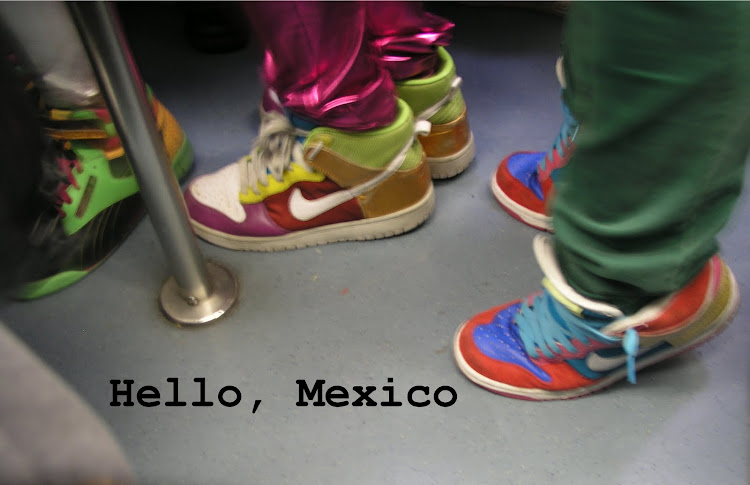 One of the most common questions people ask me, after they find out I´m gringo, is: "What do you think of Obama?"
One of the most common questions people ask me, after they find out I´m gringo, is: "What do you think of Obama?"I always tell them I hope he wins, but it´s such a close race that it´s too hard to predict (and if he loses, I´m moving to Canada -- or staying in Mexico).
Then I return the question, asking, "what do you think"?
The response depends on who I´m talking to: unless it´s a young person, they usually say they have no opinion (in general, Mexicans tend to err on the cautious side when talking about politics, especially if it´s with foreigners). But if it´s someone under 30, undoubtedly they will say Obama.
Curiously, Mexicans showed little interest in the US presidential race. According to a Pew Global Attitudes survey conducted in June, Mexico is the country with the fourth-lowest interest in the race (of the 23 nations polled). 30 percent of Mexicans have a favorable image of Obama (compared to 19 percent of McCain). There´s something to be said, however, about the timing of that poll: it´s two months old, the race has certainly heated up since then, and McCain made a brief stop to Mexico last month, in what was a widely publicized event, and to some, a misguided and awkward excuse to garner Latino votes in the US. What´s more, McCain is Protestant, and received blessings in the Basilica (Mexico´s equivalent of the Mecca), in an overwhelmingly Catholic country and one in which (unlike the US) politicians avoid mixing religion with their campaigns. Misguided, indeed.
Elsewhere
The U.S. presidential race is captivating far more than Americans´attention: it´s safe to say that in nearly every country, particularly in Western Europe, foreigners favor Obama by as much as 53 percent over John McCain (72%:19% in Spain; 84%:33% in France), and in some countries (notably, Japan, at 83 percent, and Germany, about 82 percent), the election is being followed heavily or somewhat (in the US, it´s at 80 percent). Not surprisingly, McCain maintains his highest ratings in the US (60 percent have favorable views of McCain, 59 percent for Barry), while every other country polled by Pew (except Jordan) favors Obama.
